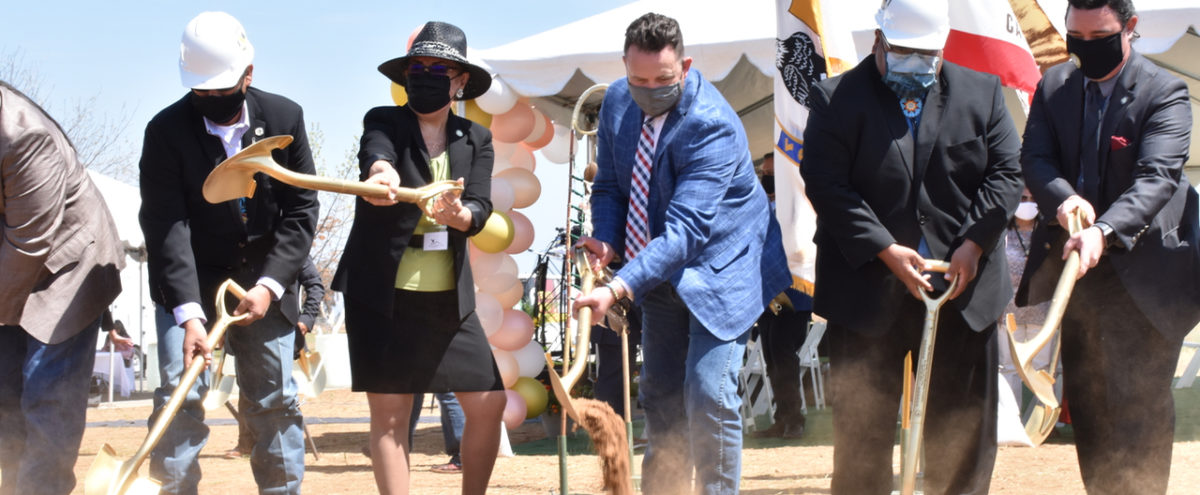
Tribal officials break ground on the new Eagle Mountain Casino in Porterville in April. Photo by Frank Lopez
Written by Frank Lopez
Gov. Gavin Newsom this weekend signed Assembly Bill 1180, which adds federally recognized California Indian tribes to the list of agencies offered a right of first refusal when purchasing surplus lands from a local agency.
Introduced by Devon J. Mathis (R-Porterville) and sponsored by the Tule River Indian Tribe of Porterville, the bill received support from federally recognized tribes including the Barona Band of Mission Indians, the Jamul Indian Village of California, the Tejon Indian Tribe and the Yocha Dehe Wintun Nation, and as well as the City of Porterville.
“I am extremely grateful and humbled to have lead this effort to provide a fair and meaningful opportunity that allows federally recognized tribes to purchase and regain culturally and historically significant lands,” said Mathis. “By giving California tribes the opportunity to acquire surplus lands, AB 1180 offers some measure of recompense for the great ‘land grab’ of the late 1800s, when tribes relinquished vast territories to the United States in exchange for peace, pursuant to treaties negotiated but not honored.”
Mathis is hopeful the new law will become a framework for other states to restore lands to federally recognized tribes, according to a statement from his office.
Existing law defined “exempt surplus land” as “surplus land that a total agency is transferring to another local, state, or federal agency for the agency’s use.” This bill would add land transferred by a local agency to a recognized California Indian Tribe to the definition of exempt surplus land.
“Local agency” refers to every city organized under general law or by charter, county, city and county, district, housing authority or other political subdivision of the state that is empowered to acquire and hold real property.
“Federally-recognized California Indian Tribes have been excluded from many state laws that create opportunities for tribes to collaborate with nearby local governments,” said William Garfield, chairman of the Tule River Indian Tribe. “Adding tribes to the California Surplus Land Act is an important step toward respecting the sovereignty of tribal governments, and it will facilitate joint planning between tribes and local governments that will improve local communities for all people.”
The law does not prevent a local agency from obtaining a fair market value from its sale of surplus land.
Late last year, The Tule River Indian Tribe received federal approval to relocate its Eagle Mountain Casino from its reservation in the foothills east of Porterville to property within the Porterville Airport Industrial Park.
Tribal officials broke ground at the site in April and plan to open in December 2022.
Mathis stated it is not the intent of the bill to allow tribes to build casinos outside of tribal lands.
“However, we cannot speak to the specific purposes for which a Tribe might purchase the land,” according to a statement. “One of our primary hopes for the use of the land is to promote the growth and development of our Federally Recognized Tribes, and to make some recompense for historical injustices.”








